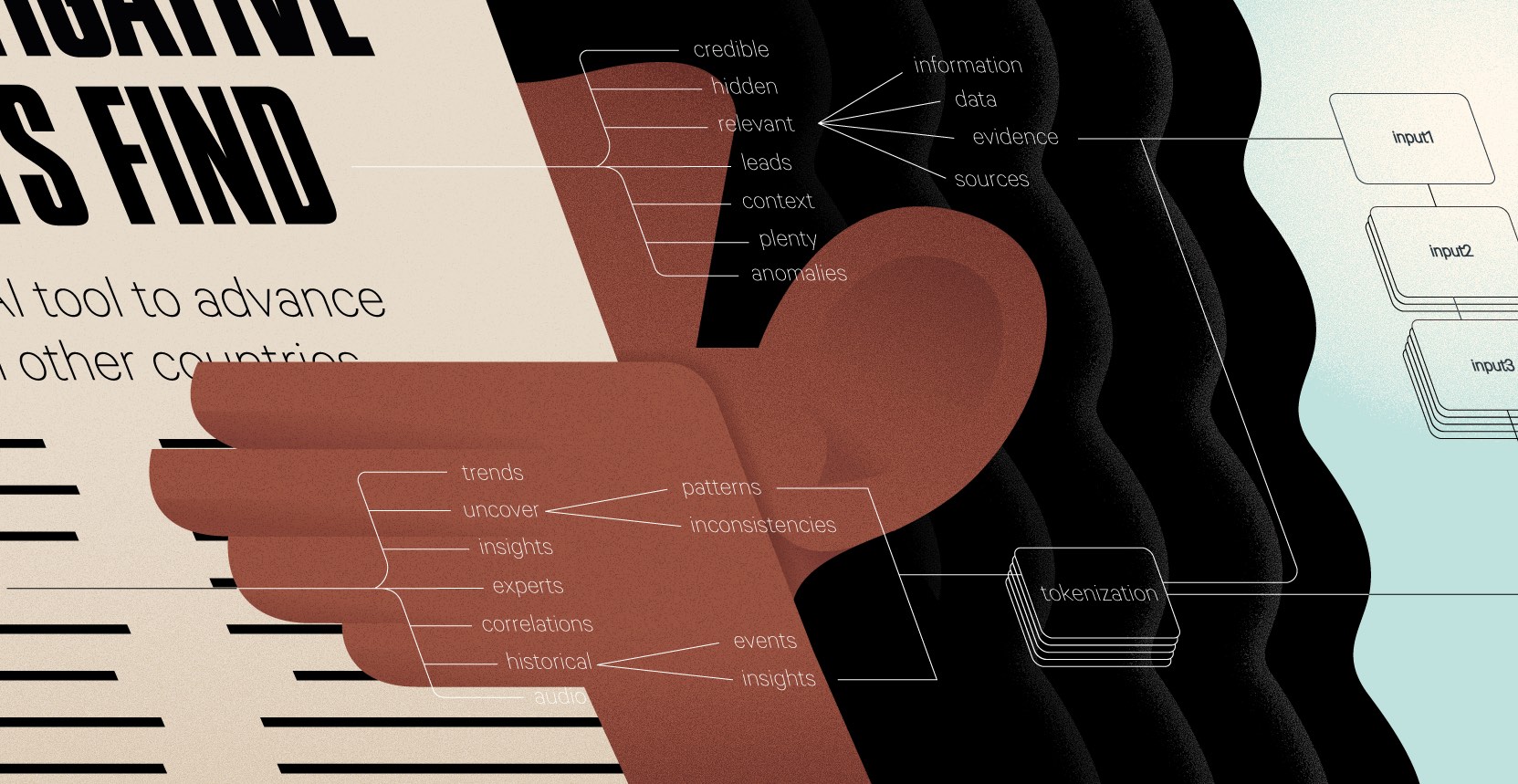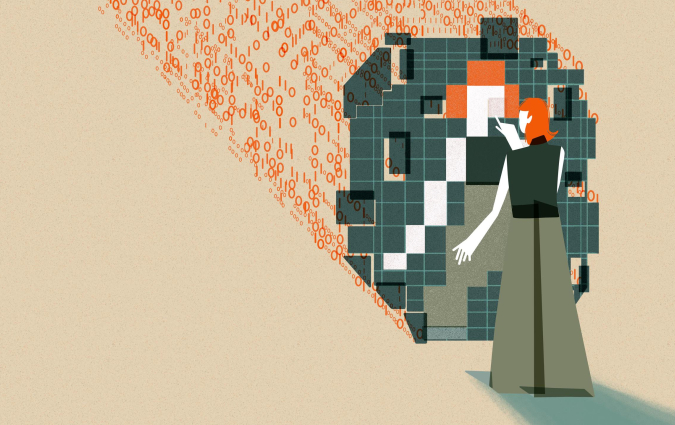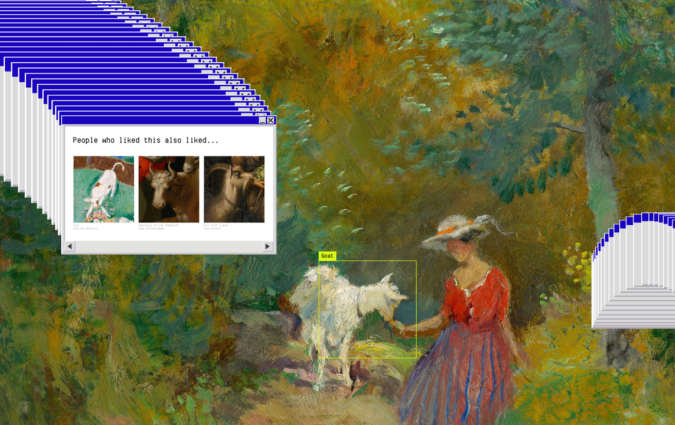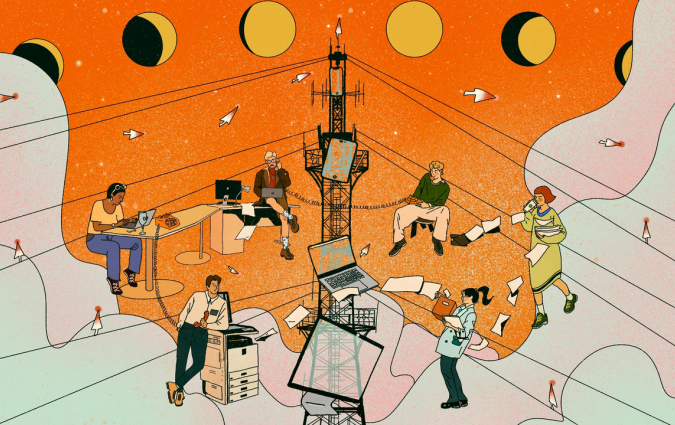Evidence, engagement, and expansion: New Reuters Institute work on AI and the future of news

Illustration authored by Alfredo Casasola and based on the charts in this seminal paper on AI.
Evidence, engagement, and expansion. These are going to be the three key priorities for how we at the Reuters Institute approach our work on AI and the future of news over the coming months, made possible by seed funding from Reuters and in partnership with our core sponsor, the Thomson Reuters Foundation.
Given all the exciting work already underway – JournalismAI at the LSE, the AI Journalism Lab at CUNY, Partnership on AI’s work on media, AI initiatives by industry associations including WAN-IFRA, EBU, and INMA, offers from consultancies including FT Strategies, and countless roundtable discussions – we want to make sure that we add value to already lively conversations.
These three priorities will guide how we try to make sure we do not needlessly replicate anything:
- Evidence: we will expand the empirical research we do both on how news media use AI, how AI is used on news, and how the public thinks about AI and news; we will continue to do original reporting on issues around AI and news; and we will bring computer scientists from the University of Oxford to discussions around AI and the future of news.
- Engagement: we will host regular private sessions where journalists, editors, and news media executives can learn more about AI without the pressure to be “on message” that tends to come with more public settings. This is in line with our general focus on creating spaces where participants can be curious, open-minded, and speak about difficult things in addition to publicising things they are proud of.
- Expansion: we want to enable discussions that take a broader view than “what can journalists and news media do with AI” to also consider AI as a topic to cover, as a reason for concern for many journalists and citizens, and something that platforms, the public, and many others will use in ways that journalists and news media need to try to understand, also when they have little to do with news.
It is important to have conversations among AI enthusiasts in the profession, with technology companies, with industry associations representing news media, and with consultants offering relevant expertise.
It is also important to bring other forms of evidence to these discussions, to have conversations that centre doubt and uncertainty as much as confidence, and to take a broad view with, to lift a line from the Reuters Trust Principles, “due regard to the many interests which [we serve] in addition to those of the media”. That is what we will focus on.
We want to connect journalists (many of whom are critical of and worried about AI), editors and executives (who are often aggressively pushing for using AI even as they have their own reservations), and make sure that their approach to AI is informed by data on how the public thinks about these issues, and by insight from computer scientists and other experts from outside the profession of journalism, the news media industry, and the companies and consultants selling AI services.
We hope this can help journalists, editors, and news media executives make sense of a fast-changing moment where AI comes across as simultaneously a buzzword, a bubble, and already very powerful.
In the months ahead we will be offering Digital Deep Dives on AI where practising journalists have a chance to connect with researchers from computer science and social science to discuss AI in a closed setting. We will be hosting private AI show-and-tell sessions for editors and news media executives to talk through concrete examples of work they are doing with AI (including the problems and failures along the way). We will continue to do original reporting on AI. We will also publish research including on what you get when you ask generative AI chatbots for news, what the public thinks about the use of AI for news, a chapter on AI in our Reuters Institute Digital News Report, qualitative research on how people approach AI and news, and more.
This builds on work we have been doing since 2016 as part of our research (for example, on news media blocking AI crawlers, how news media cover AI, how news media use AI and how people access news in part through platforms relying on AI and how they think about such algorithms compared to editors), as well as through sessions in our journalist programmes and leadership programmes.
We have already expanded our work on AI in recent years in particular as part of Nic Newman’s annual Journalism, Media, and Technology Trends and Predictions report and research led by Richard Fletcher, through reporting by Marina Adami, workshops hosted by Jessica Cecil, and work by David Caswell and Gina Neff as part of the leadership programmes run by Federica Cherubini and Tania Montalvo.
We have also hosted public seminars by, among others, Hilke Schellmann, Arthur Grimonpont, Rishad Patel, private sessions by Mishi Choudhary, Michael Osborne, and others in the journalist programmes run by Mitali Mukherjee and Caithlin Mercer. In addition, we have engaged with policymakers in the Council of Europe, the EU, the UN, and elsewhere on AI-related issues too.
Now we are pulling together these different strands of work by focusing on how we, through doubling down on evidence, engagement and expansion, can make a distinct contribution to discussions around AI and the future of news as part of our mission to explore the future of journalism worldwide.
It is important that there are broad discussions involving civil society, policy makers, technology companies, and researchers in addition to journalists and editors, and it is important that we have a robust public debate around AI.
It is also important that there are independently hosted spaces that are by journalists and for journalists, by the news industry and for the news industry but not inward looking, to explore what AI might mean for the future of news – we hope to help foster those spaces, and anchor discussions there in empirical research, original reporting, and expert input from computer scientists and others.
I’ll work with Marina Adami, Richard Fletcher, and Tania Montalvo on this, and we’ll review our work as we go along – it is a fast evolving field, and, like everybody else trying to make sense of it, we need to experiment and listen to community feedback to get it right!
We are grateful to Reuters who has provided seed funding for the first few months as we expand our work on AI, and to our core funder, the Thomson Reuters Foundation, who will partner with us on the Digital Deep Dives, and whose long-standing commitment to the institute help to make all our work possible.
In every email we send you'll find original reporting, evidence-based insights, online seminars and readings curated from 100s of sources - all in 5 minutes.
- Twice a week
- More than 20,000 people receive it
- Unsubscribe any time





